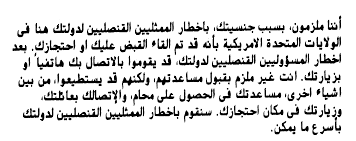
记忆方法
记忆“Arabic”这个单词,可以将它拆分为两个部分:“Arab”和“-ic”。联想一个具有阿拉伯特征的标志性人物或事物,比如穿着传统阿拉伯服装的人,然后想象这个特征是普遍的,也就是“-ic”后缀表示的性质。这样,你就将“Arab”与“阿拉伯人”或“阿拉伯文化”联系在一起,而“-ic”表示这种性质或相关的事物,从而记住“Arabic”是阿拉伯语的意思。
以上内容由AI生成, 仅供参考和借鉴
英语词源
- Arabic (adj.)
- early 14c., from Old French Arabique (13c.), from Latin Arabicus "Arabic" (see Arab). Old English used Arabisc "Arabish." Originally in reference to gum arabic; noun meaning "Arabic language" is from late 14c.
Arabic numerals (actually Indian) first attested 1727; they were introduced in Europe by Gerbert of Aurillac (later Pope Sylvester II) after a visit to Islamic Spain in 967-970. A prominent man of science, he taught in the diocesan school at Reims, but the numbers made little headway against conservative opposition in the Church until after the Crusades. The earliest depiction of them in English, in "The Crafte of Nombrynge" (c. 1350) correctly identifies them as "teen figurys of Inde."
权威例句
- 1. The clock is available with either Roman or Arabic numerals.
- 这款钟有带罗马数字的,也有带阿拉伯数字的。
- 2. Mombasa is a town with a beguiling Arabic flavour.
- 蒙巴萨是一座充满迷人的阿拉伯风情的城市。
- 3. He spoke in Arabic, a short staccato burst.
- 他突然用阿拉伯语叽里呱啦说了一串话。
- 4. He spoke abruptly, in barely comprehensible Arabic.
- 他突然开口了,说的却是几乎听不懂的阿拉伯语。
- 5. I was asked to lecture on the Arabic literature yesterday.
- 昨天我应邀去讲阿拉伯文学.
